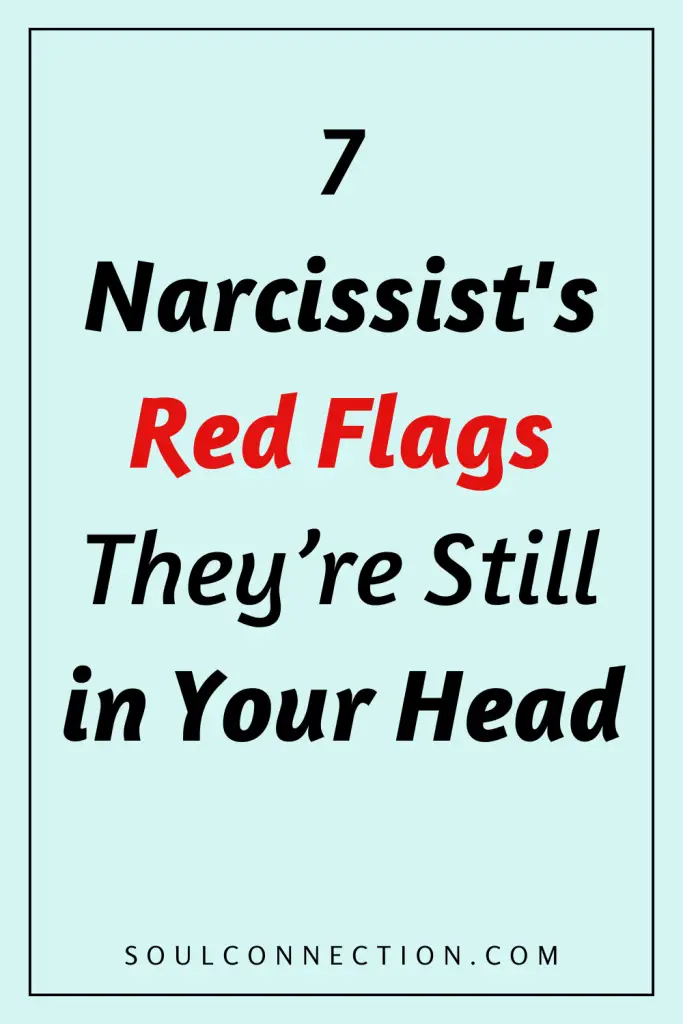Ever escaped a narcissist only to realize—surprise!—they’re still renting a penthouse in your mind, utilities included? It’s almost as if they left a little scented candle burning in your psyche, just to say, “You can check out, but you’ll never leave.”
Narcissists have a way of leaving fingerprints all over your self-esteem, and sometimes it’s hard to tell if you’re haunted or just gaslit.
If you’re starting to wonder why you still hear their voice every time you try to make a decision or accidentally wear socks that don’t match, welcome to the club.
Grab a seat; the snacks are metaphorical but the support is real. Here’s how to spot those red flags waving in your mental rearview mirror.
1 Still Seeking Their Approval (Even Though You Swore You’re Done)
Here you are, out of the relationship, eating better, breathing easier, maybe even sleeping diagonally across the bed. You post a picture, get a new job, land a cartwheel without face-planting.
Yet, somewhere deep down, you ask yourself: “Would they be proud of me?”
That urge to win their approval lingers like a bad perfume. Newsflash: you never needed it.
If your gut still wants validation from someone who’d rather give themselves a standing ovation than compliment you, it’s a screaming red flag that their standards are still squatting in your decision-making process.
To break this spell, try flipping the script. Next time you catch yourself wondering what they’d think, ask what your best mate or your dog would say instead. (Spoiler: both would probably be thrilled you made it out alive.)
2 Overthinking Every Tiny Mistake
Dropped a spoon? Missed a deadline? Accidentally called your boss “Mum”? Suddenly, an inner critic launches into an Oscar-worthy monologue about how useless you are—suspiciously reminiscent of your ex’s greatest hits.
Narcissists are Olympic-level blamers. Even after they’re gone, their high standards and drama can morph into your own inner voice. If your brain’s default setting is “panic at imperfection,” congratulations, you’ve caught the narcissist residue.
Start challenging this voice. Write down the “mistake,” then jot down what you’d say if your favourite human made the same error. Odds are, you’d be a lot kinder to them than the peanut gallery in your head.
3 Apologizing for Existing
Apologies have their place. Like when you accidentally elbow someone in the ribs during rush hour, or eat the last Tim Tam. But if you’re saying sorry for things like “having feelings,” “getting a cough,” or “laughing too loudly,” it’s a clue.
Narcissists are champions at making you feel like a chronic inconvenience. That habit can stick, turning you into a one-person apology tour even in safe, loving company.
Try an experiment: See how many unnecessary apologies you can catch in a day. For every time you catch yourself, swap “Sorry” for “Thanks for understanding” or even better—just say nothing. The world won’t end, promise.
4 Second-Guessing Your Memories
Ever tell a story and then immediately worry you remembered it wrong? Maybe your memory says, “He shouted at me in public,” but that little inner narcissist whispers, “Did he? Or are you just dramatic?”
Gaslighting 101: Make you doubt your own recollection, to the point you can’t trust your gut.
If you find yourself double-checking your memories, fact-checking your own feelings, or asking others, “Was I overreacting?” that’s a hangover from narcissist logic.
Flip it: If it felt off, it was off. Your memories are valid. Next time, write things down in real time to remind yourself, because a pen is mightier than manipulative hindsight.
5 Constantly Bracing for Criticism
Are you waiting for the shoe to drop, even when you’re surrounded by people who’d rather throw confetti than shade?
That ever-present tension—the one that says, “If I relax, something terrible will happen”—has narcissist fingerprints all over it.
Their pattern of unpredictable anger or icy silence conditions you to anticipate the worst, even long after they’re gone. It’s like your nervous system is trained for combat when all you’re facing is a group chat and a leftover pizza.
Find your safe people and tell them what’s up. Let them reassure you, out loud and often, that you’re not about to be ambushed over a typo or a bad hair day.
6 Guilt for Setting the Smallest Boundaries
“Can I actually say no?” If that question sends your anxiety through the roof, your internal boundaries may be full of holes courtesy of your resident narcissist.
Narcissists hate boundaries—even reasonable ones like, “I need a nap,” or, “Can you not track my phone, thanks?”
If you feel a rush of guilt or dread any time you try to protect your time, privacy, or emotional energy, they’re still calling the shots from your subconscious.
Boundaries don’t require a permission slip. If enforcing them gets you the shakes, start tiny. Say no to an event you genuinely don’t want to attend, or let a call go to voicemail.
Notice the world doesn’t end, and neither do you.
7 Feeling Responsible for Everyone’s Emotions
You’ve become a human mood ring, constantly scanning the room for problems to fix, eggshells to tiptoe over, or hurricanes to preempt.
If someone’s upset, you leap into action, even if it’s got nothing to do with you. Welcome to the legacy of managing a narcissist’s unpredictable moods.
Their emotional volatility taught you that peace is your job and drama is always your fault. Now, your nervous system acts like the world’s shakiest air traffic controller, desperate to keep every flight on time.
Here’s the magic trick: Someone else’s meltdown isn’t your emergency. Practice sitting in mild discomfort. If someone isn’t thrilled with you, that’s their business.
Your job? Stay hydrated and mind your own side of the street.
Reclaiming Your Mental Lease
Evicting a narcissist from your daily life is one thing. Kicking them out of your brain is another, but it’s possible (and, let’s be honest, deeply satisfying).
If you spotted yourself in more than one of these red flags, you’re not broken—you’re human, and you’re healing.
Small steps add up: Challenge the old tapes, draw one wobbly boundary, and give yourself full credit for every act of self-kindness.
With every tiny rebellion, you reclaim a little more space for the person you were before the narcissist tried to rearrange the furniture in your head—someone worthy, lovable, and gloriously, unapologetically themselves.
Just don’t be surprised if you start humming “I Will Survive” on your way to the shops.
That’s not a symptom; it’s progress.


